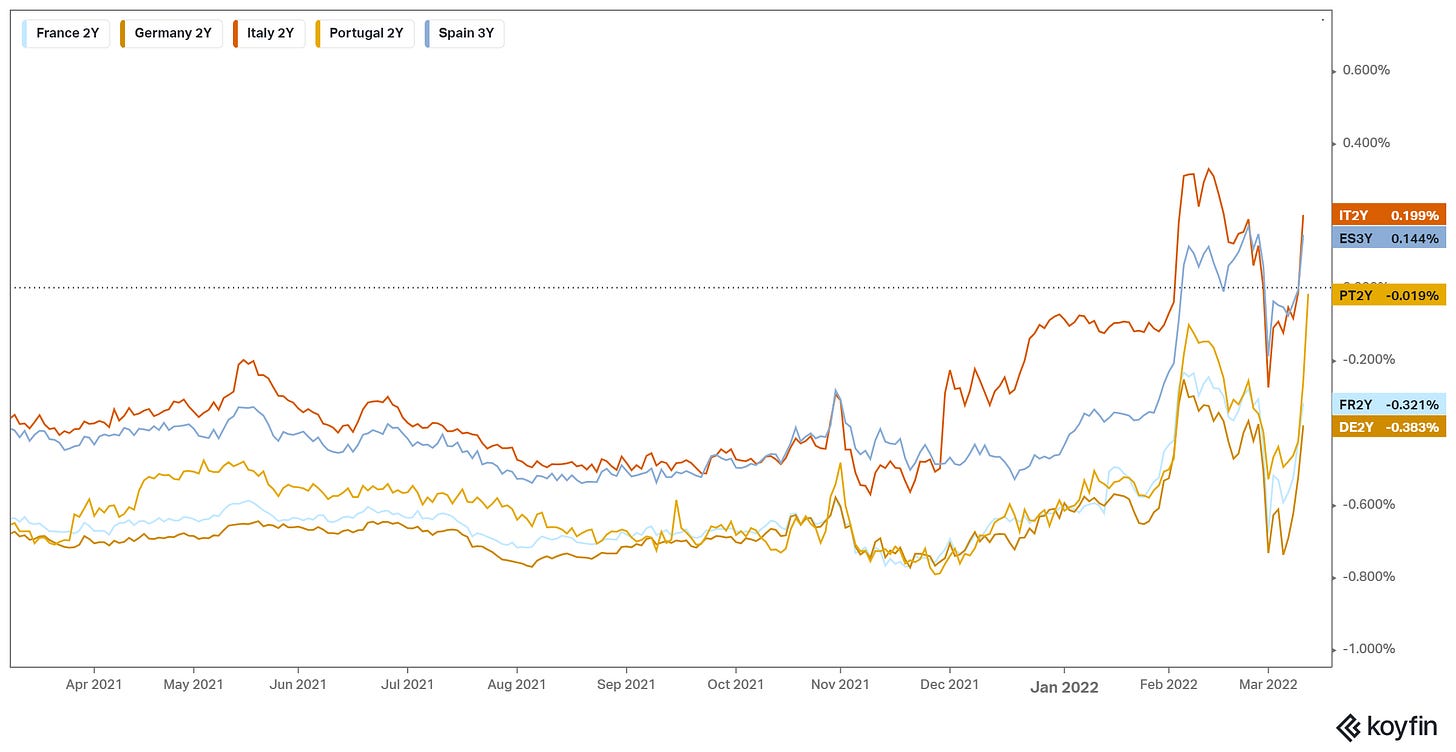Inflation came in hot (7.9%), as expected. With the recent pop in oil prices, the next inflation reading will likely be in the double-digits (year-over-year).
With that, the Fed starts its inflation chase next week (beginning the rate hiking campaign). The European Central Bank began setting expectations for a similar plight yesterday morning (telegraphing an end of bond buying and a rate liftoff).
Let's talk about Europe…
Last week we looked at the euro, as the proxy for trouble in Europe. The common currency of Europe has been on the slide since the Russian invasion in Ukraine - and despite a hawkish ECB, the euro continued lower yesterday.
There are plenty of things to worry about in Europe - telegraphing a tightening campaign to address the hottest inflation in 30 years, in the face of downgraded growth is one.
Another, is ending the asset purchase program (by Q3) that has been the force behind maintaining stability in the sovereign debt market in Europe (i.e. ECB intervention/bond buying has kept countries like Italy, Spain, Portugal and Greece solvent since the days of the financial crisis).
The ECB ending its backstop of the weaker euro zone countries, alone, could create a dangerous spike in European sovereign bond yields.
This, as we are just in the early days of discovering what European (and global) banks are directly or indirectly exposed to Russian debt.




